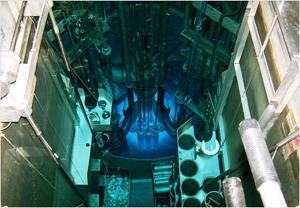por
Thomas Dworetzky, Contributing Reporter | March 29, 2017
The University of Missouri Research Reactor (MURR) may soon become a vital U.S. supplier of molybdenum-99 (Mo-99).
Along with its partners, Nordion, a business of Sterigenics International, and General Atomics (GA), the facility has submitted a license amendment request (LAR) to the U.S. Nuclear Regulatory Commission (NRC).
Calling the move a “critical step,” Nordion stated that the facility could provide “nearly half of U.S. demand for Mo-99, which currently must be imported from outside North America.”
"We will start receiving Mo-99 from MURR in mid-to late-2018," said Phil Larabie, Vice President, Medical Isotopes for Nordion. "Filing this license amendment is a key step in our efforts to stabilize and support the nuclear medicine community in North America and beyond for decades to come."
The substance is critical for a number of health care concerns, including cardiovascular disease and cancer. The most important isotope derived from Mo-99, technetium-99m (Tc-99m), is key to performing over 80 percent of the nearly 50 million nuclear medicine procedures done yearly.
"This LAR submission shows the Nuclear Regulatory Commission that we will have all of the technology, expertise and safety measures needed to begin producing Mo-99 in place and ready to go once approval has been received," said Ralph Butler, executive director of MURR. "As a public research institution, we are proud to play a partnership role with GA and Nordion in helping America secure a new, domestic source of Mo-99."
When approved, the facility will start making Mo-99 via selective gaseous extraction (SGE) – a General Atomics proprietary technology – to extract the isotope from low enriched uranium (LEU) targets.
The technique maximizes specific activity and avoids producing liquid uranium waste.
The Moly-99 will be shipped to Nordion's Ottawa, Ontario, for purification and distribution.
Nordion plans to keep its conventional Mo-99 processing capacity going for about another year to ensure that Mo-99 will be available should there be a global shortage.
MURR, a 10-megawatt reactor, is the largest university research reactor in the U.S. It received a 20-year operating licensing renewal from the Nuclear Regulatory Commission this January after more than 50 years of operation, according to Missouri University publication,
The Maneater.
“For MURR to provide a supply of Mo-99 would mean that the country would again have a domestic supply of this really important medical isotope,” MURR Associate Director David Robertson told the publication in February.
